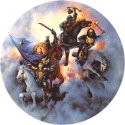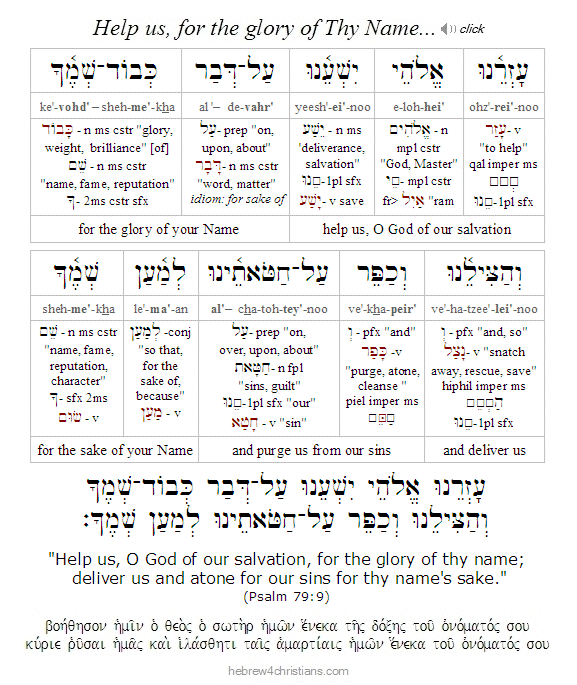|
Some people might feel a certain amount of ambivalence about the holiday of Yom Kippur since it focuses on the purification of the sanctuary of the Temple, and this seems to have little to do with Yeshua and His sacrifice for our sins. After all, the Levitical form of worship is described as "a shadow (σκιά) of the good things to come, instead of the true form (εἰκών) of these matters, and it can never, by the same sacrifices that are continually offered every year, make perfect those who draw near" (Heb. 10:1). Since the blood of bulls and goats cannot truly take away sins (Heb. 10:3), the sacrificial system was intended to foreshadow the coming work of Messiah, who was born to die, in accordance with God's will, and to offer his own body as a sacrifice for sin "once for all" (Heb. 10:5-10). "For by a single offering he has perfected for all time those who are being sanctified" (Heb. 10:14).
Now while it is gloriously true that Yeshua functioned as our great High priest after the order of Malki-Tzedek by offering his blood upon the heavenly kapporet in the holy of holies "made without hands," there still is a prophetic component to this holiday that applies to ethnic Israel regarding the prophesied End of Days. After all, the realm of "shadows" still applies in the case of unbelieving Israel, who has yet to behold the unveiled glory that awaits her... Therefore the psalmist prophetically cries out, "Help us, O God of our salvation, for the glory of your Name; deliver us, and atone for our sins, for the sake of your Name" (Psalm 79:9), and this refers to the hour when Israel will call upon the LORD for salvation during the End of Days, otherwise called the great Day of the LORD. This event is prefigured in the blast of the "great shofar" which will be sounded to announce Yeshua as Israel's true Redeemer and King. Indeed, our the Messiah will one day return to Israel, cleanse her Temple, restore her to Himself, and set up His glorious kingdom.
 |
Since prophetically speaking Yom Kippur signifies ethic Israel's atonement secured through Yeshua's sacrificial avodah as Israel's true High Priest and King, there is still a sense of longing and affliction connected to this holiday that will not be removed until finally "all Israel is saved" (Rom. 11:26). So, on the one hand we celebrate Yom Kippur because it acknowledges Yeshua as our High Priest of the New Covenant, but on the other hand, we "have great sorrow and unceasing anguish in our hearts" for the redemption of the Jewish people and the atonement of their sins (Rom. 9:1-5; 10:1-4; 11:1-2, 11-15, 25-27). In the meantime, we are in a period of "mysterious grace" wherein we have opportunity to offer the terms of the New Covenant to people of every nation, tribe and tongue. After the "fullness of the Gentiles" is come in, however, God will turn His full attention to fulfilling His promises given to ethnic Israel. That great Day of the LORD is coming soon, chaverim...
|



